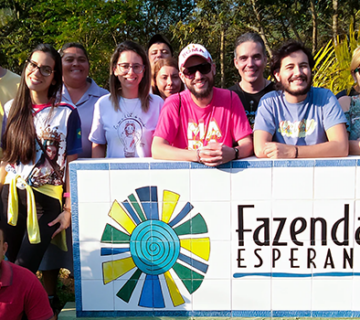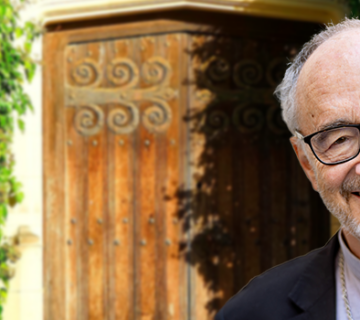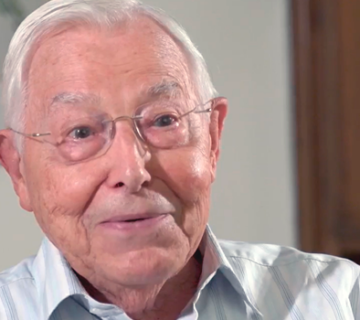 Called “Condecoration” of the “Order of the Congress of Colombia”, it was instituted in 1987 by the Colombian parliament: it is an honour that the two houses can confer, in the name of the people, upon citizens or institutions that have served the country. It was in recognition of this that the “Condecoration”, solicited by the Senator of the Republic, José Darío Salazar Cruz, was conferred upon the Focolare Movement and delivered to the Italian magistrate, Dr Giovanni Caso, Honorary Deputy President of the Italian Appeals Tribunal.
Called “Condecoration” of the “Order of the Congress of Colombia”, it was instituted in 1987 by the Colombian parliament: it is an honour that the two houses can confer, in the name of the people, upon citizens or institutions that have served the country. It was in recognition of this that the “Condecoration”, solicited by the Senator of the Republic, José Darío Salazar Cruz, was conferred upon the Focolare Movement and delivered to the Italian magistrate, Dr Giovanni Caso, Honorary Deputy President of the Italian Appeals Tribunal.
“We welcome this recognition of the work of Chiara Lubich as a added encouragement to continue with a greater impetus and enthusiasm, on the path she has shown everywhere, and particularly in Colombia”. This was the message of thanks that the Focolare president, Maria Voce, sent to the honourable members of parliament and to all those present at the extraordinary session of the Congress of the Republic of Colombia held on the 25th April. The title of “Commendatore” was conferred upon the Focolare with a citation that “recognized the lofty contribution that the Movement had given during its 40 years of presence in Colombia to the benefit of living together and of fraternity”.
 Among those present was the Secretary of the Bishops’ Conference, Mons. Daniel Falla Robles, the Anglican bishop Francisco Duque, and the Personero of Bogota [Head of the District Office of Human Rights], Dr. Ricardo Cañón. The citation particularly recalled how the Focolare, in its 40 years of presence in Colombia, gave rise to “models of living together in various social circles, in the fields of education, law, economy…”. Among the various concrete realizations, mentioned by the Senator in his speech, were that of Los Chircales, the Sol Naciente school, and the collaboration with Social Pastoral Care of Soacha.
Among those present was the Secretary of the Bishops’ Conference, Mons. Daniel Falla Robles, the Anglican bishop Francisco Duque, and the Personero of Bogota [Head of the District Office of Human Rights], Dr. Ricardo Cañón. The citation particularly recalled how the Focolare, in its 40 years of presence in Colombia, gave rise to “models of living together in various social circles, in the fields of education, law, economy…”. Among the various concrete realizations, mentioned by the Senator in his speech, were that of Los Chircales, the Sol Naciente school, and the collaboration with Social Pastoral Care of Soacha.
Maria Voce laid emphasis on fraternity as the “necessary condition for every living together”, considering how its application “on a larger scale in political, legal, and social behaviour opens up remarkable possibilities. It favours dialogue at various levels and enables to keep together and valorise diverse cultures and thoughts, and divergent human experiences, which otherwise could lead to irremediable conflicts. Freedom and equality, foundations of democracy, acquire new meaning thanks to fraternity. Fraternity can sustain and give new vision to those organizations committed to overcoming the barriers between individuals and peoples, so as to accelerate the stages towards the unity of mankind and to ensure peace”.
So, the Focolare commitment continues in Colombia, which in these past days has also been realised through a series of meetings held by Dr. Caso, member of the International Central Commission of Communion and Law, an international network of professionals and academics in the field of justice, who strive to combine the paradigm of fraternity with justice. The calendar of events in the past also reached Central America, with an important meeting of professionals in the field of justice in Guatemala.


 Italiano
Italiano Español
Español Français
Français Português
Português



No comment